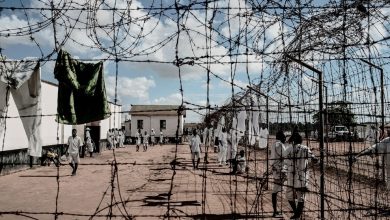‘2011 tobacco season not that disappointing’
 The year 2011 had a flurry of developments as far as Malawi’s number one foreign exchange earner, tobacco, is concerned. The year saw the leaf raking in $293 million as compared to $416 million earned last year. Dumbani Mzale spoke to the Tobacco Control Commission (TCC) chief Executive officer Dr. Bruce Munthali on a number of issues that characterised this year’s tobacco marketing season.
The year 2011 had a flurry of developments as far as Malawi’s number one foreign exchange earner, tobacco, is concerned. The year saw the leaf raking in $293 million as compared to $416 million earned last year. Dumbani Mzale spoke to the Tobacco Control Commission (TCC) chief Executive officer Dr. Bruce Munthali on a number of issues that characterised this year’s tobacco marketing season.
Briefly summarise the 2011 tobacco marketing season.
Well, we are very much satisfied with the way the market was conducted in 2011 and it was pleasing to note that farmers produced good quality tobacco as they put in a lot of effort.
Overall, we produced 235 million kilogrammes and we earned $293 million as total revenue. During the year, we have also seen tobacco grower base being increased from 55 000 in 2010 to 65 000 in 2011. This, to us, is a sign of confidence in tobacco among our farmers.
What do you think were the main challenges that faced the industry during the year?
The notable issue was pricing of tobacco. We saw prices being depressed. This year, the overall national weighted average price was $1.24 which was slightly lower than the $1.89 earned in 2010. But we see this as a global challenge as a result of a growing anti-tobacco smoking campaign.
Last year, we saw the enactment of a strict law regarding tobacco use in Spain, Germany and North America. This is a big challenge.
Secondly, during the year, we have also seen the cost of inputs on the market sky-rocketing and this was really a big challenge, particularly on the increase of the cost of chemicals and fertilisers which I also see as a global challenge.
Thirdly, the perceived over supply of tobacco in Malawi was also another challenge that faced our local industry. Our customers are saying that we are sitting on a lot of tobacco. The other challenge was the collusion of tobacco buyers as an attempt to downsize their activities in the country.
We also saw lack of competition among buyers. Only three out of seven tobacco merchants were effective and this was not healthy to the industry.
ÂÂ
Were there new developments that emerged in the tobacco industry in 2011?
During the year, we have also seen the implementation of a new system of registering tobacco growers called the biometric system.
This will help us eliminate the proliferation of bogus tobacco growers and the elimination of growers with multiple registration numbers. Another new development was our ability to widen the customer base to Middle East, South East Asia and Europe.
Another development was the enforcement of minimum prices which now has been computerised to detect buyers who are not complying with minimum prices.
In 2011, we also harmonised our relationship with tobacco buyers just to strengthen our relationship with our traditional buyers.
The revision of Tobacco Act was also another important development in the industry apart from the launching of our strategic plan which will help us move the industry into tobacco value addition.
ÂÂ
There have been reports that during the year, most of our neighbouring countries offered good prices to their farmers which encouraged smuggling of the leaf to other countries. What is your comment on this?
That is not true. You see, Malawi is not a standalone case. In 2011, tobacco prices were depressed in Africa because of global oversupply of tobacco.
But what we intend to do is to restrict the production of the leaf to between 150 to 160 million kilogrammes this year and that is our trade requirement for tobacco.
ÂÂ
What is the outlook of tobacco in 2012?
We are a bit worried as TCC with the way the rainy season has started. We have seen a dry spell across the country which has significantly affected the transplanting of tobacco in most parts.
But we are encouraging farmers who have more seedlings to sell them to those that are in dire need. But we look at the coming season with a lot of optimism.
ÂÂ
What are your concluding remarks?
We would like Malawi to move towards value addition. That will increase revenue base for our farmers. In addition, we are calling on all tobacco industry players to be pro-active in supporting our industry.
We would like corporate entities to take responsibility in the provision of school and health facilities. We also want them to take part in reforestation programmes and also advance the welfare of farmers.
Our vision is that tobacco should remain a strategic crop as it continues to provide over 60 percent of our total forex earnings. It is also a source of 25 percent of our tax base.


